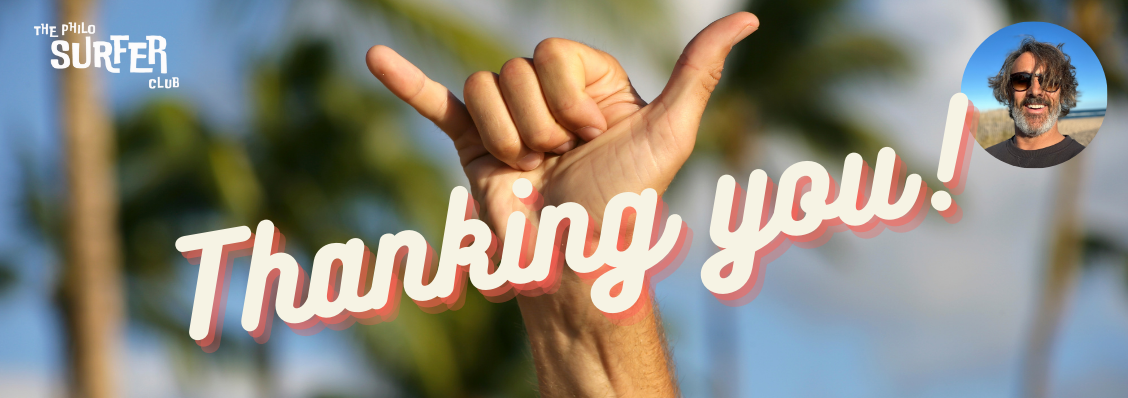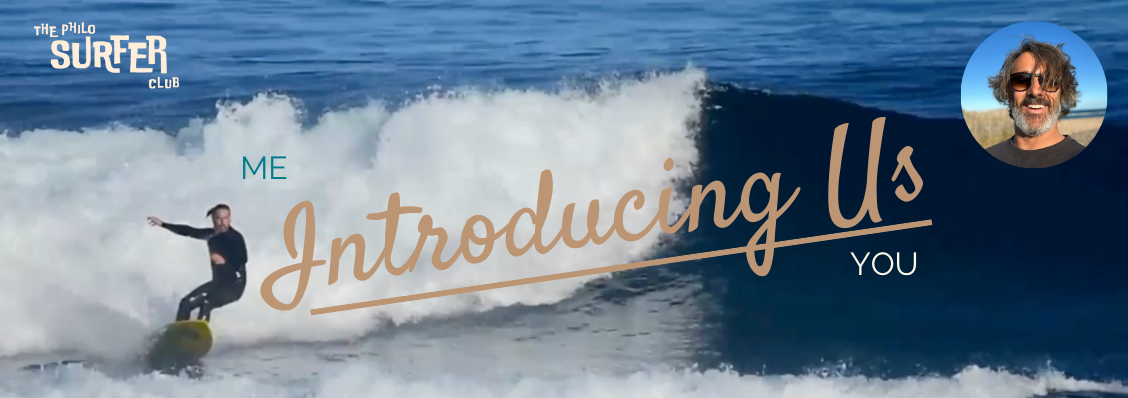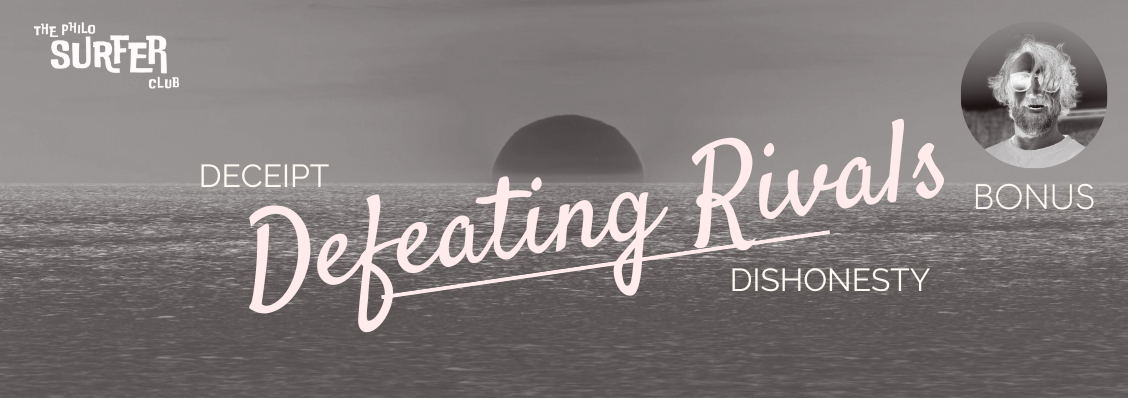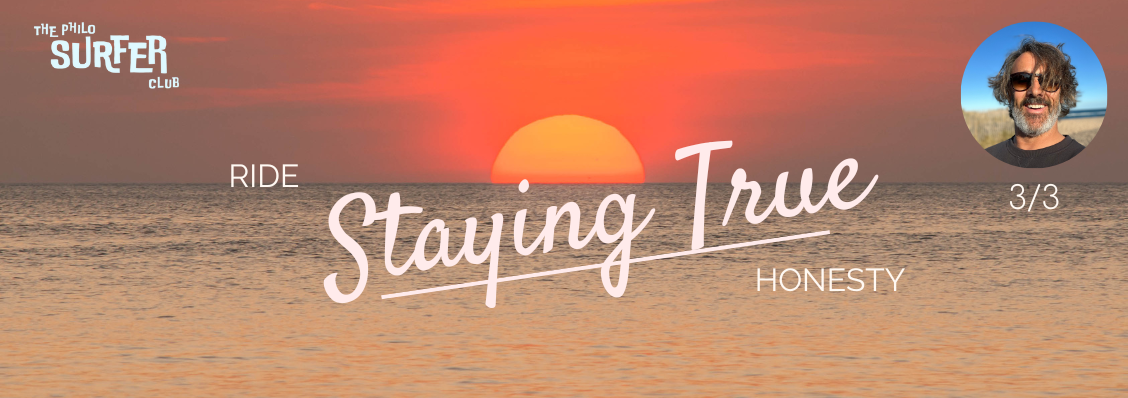Reading time: 3 minutes
Aloha!
How’s it going?
In our daily lives, lies envelop us like the ocean embraces the Tavarua island.
“I’ll never do it again.”
These lies come in all shapes and sizes, from the endearing to the deceitful.
“One more, and I’ll go.”
Lies are as much a part of our existence as the waves that caress the shore.
So, how do we navigate this sea of deception?
It’s curious, isn’t it, that we seldom delve into the intricacies of falsehood?
Thankfully, there’s a show that places truth at the forefront, making it its cornerstone:
Philosophy
So, what does philosophy teach us about lies, liars, and the lies we tell each other (including ourselvs=?
This is the central theme of The PhiloSurfer Club newsletter for the following three issues.
Spoiler alert: Don’t expect a definitive answer by the trilogy’s end.
You’ll discover three different perspectives, depending on what resonates with you or the specific situation you find yourself in.
Just as three exceptional surfers, Gerry Lopez, Shaun Tomson, and Kelly Slater, have each cultivated their unique styles within the tube.
Or like three surf schools, each imparting their variations of surfing etiquette.
Let’s begin with the wisdom of the first philosopher, Immanuel Kant, often called the GOAT German philosopher.
“Hey, Manuel, should we ever lie?”
“NEIN!”
According to Kant, lying is an absolute no-go.
“ Never, under any circumstances!”
“But come on, Manuel! Not even when your friend texts you asking about the conditions, and you’re about to experience a perfect, glassy session all by yourself?”
“Nein, not even if a less-than-honorable friend inquires about a secret surf spot. You must ALVAYS speak the truth.”
Kant certainly sets a high bar, doesn’t he?
“No exceptions to the rule.”
He’s renowned for crafting one of the most rigorous ethical systems known as
deontological or duty ethics.
For Kant, there are two types of duties:
- Perfect duties: Always mandatory.
- Imperfect duties: Contingent on the situation.
Telling the truth falls into the category of perfect duty; it’s an absolute obligation, regardless of the circumstances.
Personally, I find this standard nearly impossible to meet.
If a life-threatening situation were at hand and a killer asked me the whereabouts of my family, I’d be compelled to lie, a scenario Kant used to argue the opposite.
However, I appreciate Kant’s unwavering commitment to urging people not to lie, even though truthfulness often hovers around the 60-65% range in practice (my estimation).
Nonetheless, Kant’s ethical foundation, emphasizing mutual respect and non-harm, is commendable (every lie causes harm).
Nevertheless…
My favorite Kantian principle is the Categorical Imperative, which he formulated in several ways (the most famous one being different from this):
“Never treat people as means to an end but always as ends in themselves.”
Imagine if we all adhered to this rule:
The beach would be free of conflicts, and the lineup free from drop-ins.
So true to be true?
That’s it for today.
Until next week, when we explore a more flexible perspective, here are a few philosophical conundrums to ponder:
Dare or truth?
“I will never lie.”
Or the paradox that never ceases to intrigue me:
What does a liar do when confessing, “I’m lying”?
Hmmm.
Hang loose, never lie!
Mahalo,
Additional recommendations:
- “How to Be Perfect” by Michael Schur: This thought-provoking book by the creator of “The Good Place” explores what it means to be a good person. It delves into moral philosophy and the concept of perfection, offering an engaging and often humorous take on the pursuit of ethical living.
- “Fundamental Principles of the Metaphysics of Morals” by Immanuel Kant: Kant’s philosophical work explores the foundations of moral philosophy. It’s a profound examination of human ethics and the concept of duty, encouraging deep reflection on our moral principles and values.
- “Kant: A Very Short Introduction” by Roger Scruton: In this concise yet insightful guide, Roger Scruton introduces readers to the key ideas of Immanuel Kant. Scruton’s clear and accessible style makes Kant’s philosophy more approachable, helping readers understand the importance of Kant’s thoughts on morality and reason.
- “Caught Inside” by Daniel Duane: This captivating book takes readers into the world of surfing. Through the author’s personal experiences, it delves into the culture, passion, and humility that come with riding waves. It’s a reminder of the importance of respecting nature and finding joy in the simple things.










